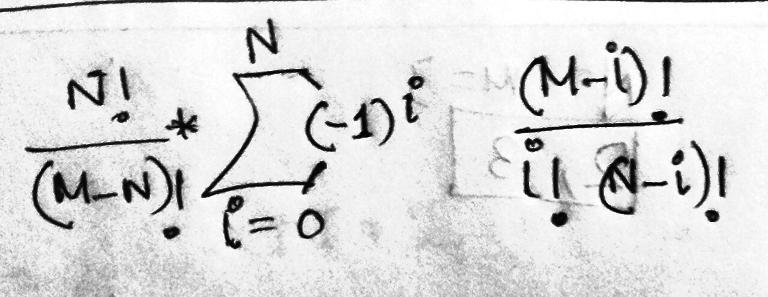Given N distinct integers from 1 to N, you have to find the number of ways the N integers can be rearranged in M empty slots such that, no integer matches with its slot index. Note that, slots are indexed from 1 to M.
Print the number of ways modulo 23377788.
0<=N<=M<100000 and It has 200 test cases.
I came up with a solution like this but not sure its correct or not. And have not any idea to modulu it by non prime. 










